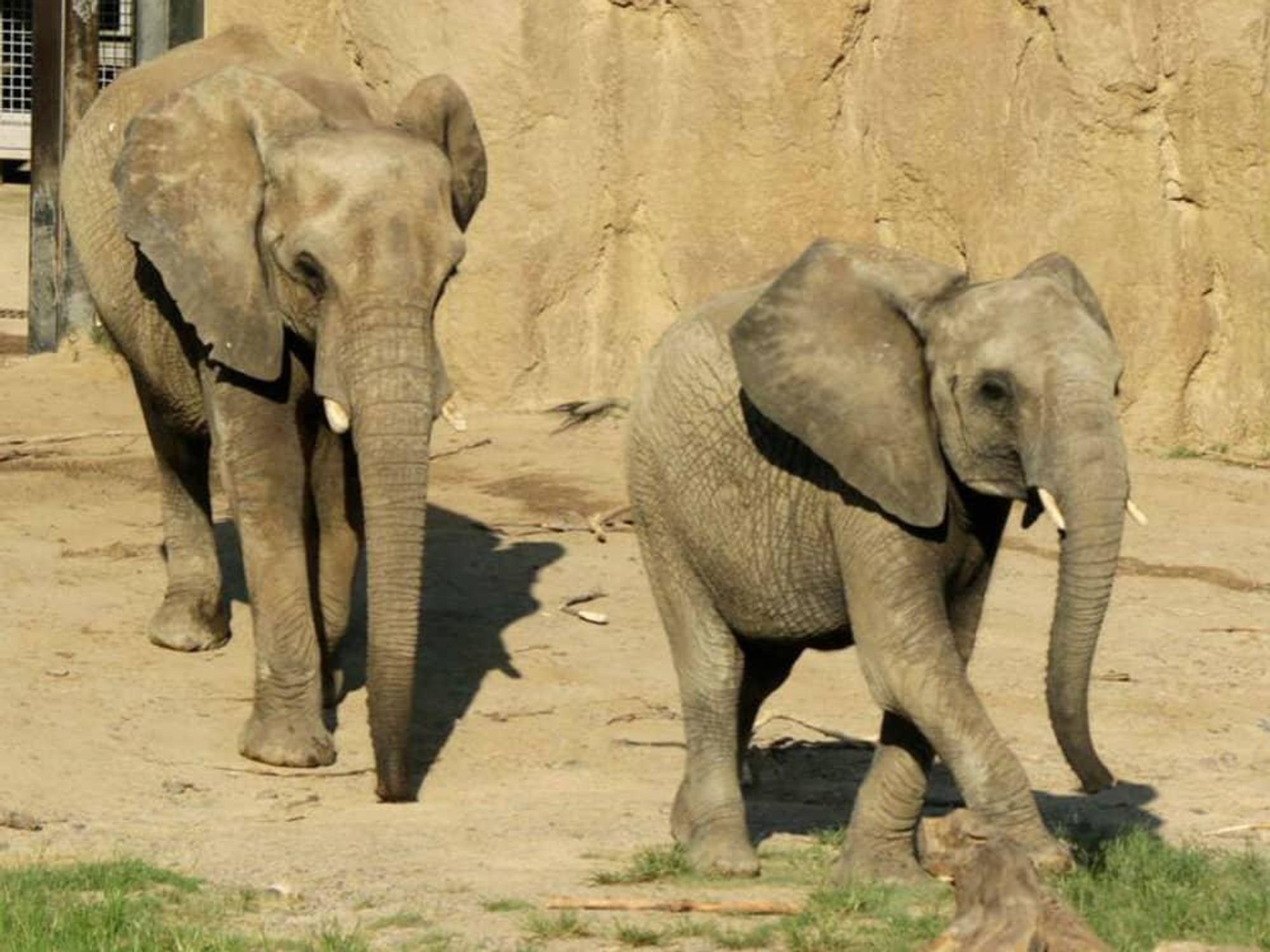Zoo News
Dallas Zoo quietly ships out two elephants it 'rescued' from Swaziland

Two of the elephants that the Dallas Zoo ostensibly "rescued" from Swaziland in 2016 have been quietly relocated to California, to the Chaffee Zoo in Fresno.
The two elephants that were moved are Nolwazi, estimated to be around 24 years old, and her daughter, Amahle, estimated to be around 9 years old. Their exact ages are not known because they were taken from their homeland in Swaziland.
They arrived at Fresno on October 16 — a journey not without risks, and one that would have taken a minimum of 32 hours, through some fairly inclement weather, without mention to the public.
"This move has been months in the making, and our team has worked closely with staff from Fresno to ensure a successful move and safe introduction to the new home for the elephant pair," reads a statement from the Dallas Zoo. "Members of Fresno's elephant team have visited Dallas multiple times over the last few months to work with our staff and to familiarize themselves with Nolwazi and Amahle’s routines and personalities."
Multiple times. Not just a drive-by, but actual expensed flights and more than one, possibly two, maybe even more.
Fresno Zoo deputy director Amos Morris says they wanted the elephants for breeding purposes. The Chaffee Zoo previously had only two elephants.
"We have been looking to grow our African elephant herd," Morris says in a release. "Having Nolwazi and Amahle join enables us to do that."
Dallas Zoo VP Harrison Edell told the Fresno Bee that their hope is for Nolwazi to assume the role of matriarch in Fresno and lead her own herd.
The Dallas Zoo is branding this "a new adventure," calling it "an amazing opportunity for them to continue to flourish" — contradicting the reality with elephants which is that they form bonds like humans do and flourish best within those relationships.
The Dallas Zoo acknowledged the importance of such bonds in a 2017 post on the elephants' status one year after they'd been removed from Swaziland.
"Their social bonding has exceeded our highest expectations," Edell said. "It's been quite heartwarming to see them form such strong connections so quickly."
So the bonds are important when you're taking elephants out of Swaziland, but not as important when you're shipping them off to Fresno.
Captive wildlife attorney Deb Robinson sees the relocation as a move to distribute the Swaziland elephants to zoos in "need" of elephants to fill their exhibits.
"Nolwazi and her daughter Amahle have been moved from the Dallas Zoo, and the comfort of the group of elephants they were imported into this country with, to the Fresno Chaffee Zoo, like chess pieces, to be bred with 14-year-old VusMusi, who was born in San Diego to another Swazi import and moved to Fresno at the age of 11," she says.
In 2016, the Dallas Zoo and two partnering zoos pulled a fast move in their battle to import 18 elephants from the wilds of Swaziland, by secretly flying them out of the country, despite protests from conservationists and activists, as well as a lawsuit filed by a group called Friends of Animals.
One elephant died during the process, leaving Dallas with only five elephants instead of the six it had contracted for. Now two of those five elephants have been separated from their pack.
The zoos claimed they were rescuing the elephants from a drought, hinting that the animals would otherwise be killed, and vowed that the elephants would be kept together. Gregg Hudson, president of the Dallas Zoo, told CNN that the zoos would ensure that elephants in the same social circles would remain together.
